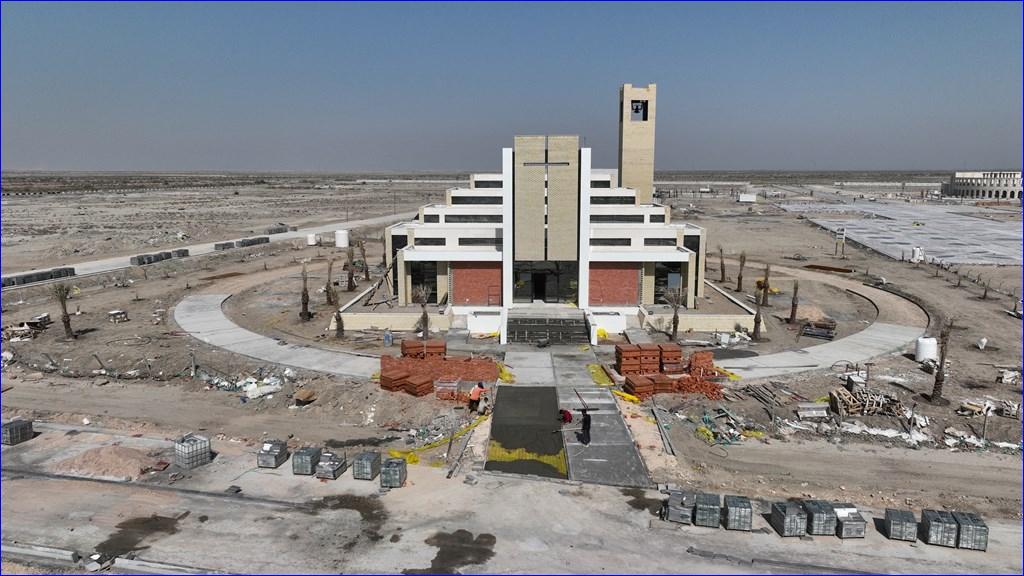A new church complex has been built near the ancient city of Ur, in Iraq, in an effort to draw attention to the long history of the country’s beleaguered Christian community.
The building of the church has been spearheaded by a Chaldean Catholic engineer who was inspired by the words of Pope Francis in an address to faith leaders at Ur, the site believed to be the birthplace of Abraham. The Pope made his landmark visit to Iraq in 2021, as the country was emerging from decades of extremist sectarian violence, which caused high levels of emigration among Iraqi Christians and other religious minorities (News, 5 March 2021).
Towards the end of the 2021 meeting, which was attended by Muslim, Jewish, and Christian leaders, the Pope led a prayer that included the words: “Guide our hands in the work of rebuilding this country.”
The engineer, Adour Ftouhi Boutros Katelma, presented the idea for the church to the Chaldean Patriarchate, pledging to supply the necessary funding.
According to the website Fides, the Chaldean Catholic Patriarch of Babylon, Cardinal Louis Raphaël Sako, and the then Prime Minister, Mustafa al-Kadhimi, expressed approval of the project. Cardinal Sako also suggested that the church be dedicated to Ibrahim al-Khalil, Abraham, father of all believers, with a hall named after Pope Francis.
“We wanted to remind everyone that Christians are originally from Iraq, so that they can return and discover their land, their past, their roots,” Mr Katelma told the Rome-based AsiaNews last week. “At the social level, we must work for mutual understanding, and this is the right time to rebuild.” The church’s inaugural liturgy will be celebrated by Easter, AsiaNews reported.
“The Pope’s visit to Iraq, especially to Dhi Qar governorate and the ancient city of Ur, was of historical importance,” the director of antiquities in Dhi Qar province, Shamil al-Rumaid, told Reuters. “This church was built . . . near the archaeological sites of the ancient city of Ur so that large numbers of our Christian brothers from all countries of the world can come visit.”
The Christian community in Iraq dates back to the first century, but numbers have fallen from 1.4 million in 1987 to an estimated 154,000, the charity Open Doors reports. Many Iraqi Christians chose to emigrate to escape the economic instability and sectarian violence that followed the 2003 US-led invasion of Iraq.
Christians are represented politically by a strict quota system, and Cardinal Sako has said that they are treated in Shia-governed Iraq as “second-class citizens”. Last July, the Iraqi President, Abdul Latif Rashid, revoked a decree recognising the Cardinal as Chaldean Patriarch “responsible for the assets of the Church”. Cardinal Sako relocated from Baghdad to a monastery in Iraqi Kurdistan in protest. President Rashid’s office said that the decision corrected a “constitutional” issue.
According to the Associated Press, Cardinal Sako blamed the move on a fellow Chaldean, Rayan al-Kildani, the head of a Shia-linked Christian militia, Babylon Brigades, which was set up after IS forced thousands of Iraqi Christians from their homes.
By Abigail Frymann Rouch






